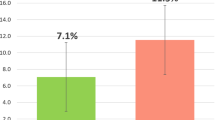Abstract
When should instruction provide or withhold assistance? In three empirical studies, we have investigated whether worked examples, a high-assistance approach, studied in conjunction with tutored problems to be solved, a mid-level assistance approach, can lead to better learning. Contrary to prior results with untutored problem solving, a low-assistance approach, we found that worked examples alternating with isomorphic tutored problems did not produce more learning gains than tutored problems alone. However, the examples group across the three studies learned more efficiently than the tutored-alone group. Our studies, in conjunction with past studies, suggest that mid-level assistance leads to better learning than either lower or higher level assistance. However, while our results are illuminating, more work is needed to develop predictive theory for what combinations of assistance yield the most effective and efficient learning.
Preview
Unable to display preview. Download preview PDF.
Similar content being viewed by others
References
Koedinger, K.R., Aleven, V.: Exploring the Assistance Dilemma in Experiments with Cognitive Tutors. Educational Psychology Review 19(3), 239–264 (2007)
Kirschner, P.A., Sweller, J., Clark, R.E.: Why Minimal Guidance During Instruction does not Work: An Analysis of the Failure of Constructivist, Discovery, Problem-Based, Experiential, and Inquiry-Based Teaching. Educational Psychologist 41(2), 75–86 (2006)
Steffe, L., Gale., J. (eds.): Constructivism in Education. Lawrence Erlbaum Assoc. (1995)
McLaren, B.M., Lim, S., Gagnon, F., Yaron, D., Koedinger, K.R.: Studying the Effects of Personalized Language and Worked Examples in the Context of a Web-Based Intelligent Tutor. In: Ikeda, M., Ashley, K.D., Chan, T.-W. (eds.) ITS 2006. LNCS, vol. 4053, pp. 318–328. Springer, Heidelberg (2006)
McLaren, B.M., Lim, S., Yaron, D., Koedinger, K.R.: Can a Polite Intelligent Tutoring System Lead to Improved Learning Outside of the Lab? In: 13th Int’l Conf. on Artificial Intelligence in Education (AIED 2007), pp. 433–440 (2007)
Clark, R.C., Mayer, R.E.: e-Learning and the Science of Instruction: Proven Guidelines for Consumers and Designers of Multimedia Learning. Jossey-Bass/Pfeiffer (2003)
Trafton, J.G., Reiser, B.J.: The Contributions of Studying Examples and Solving Problems to Skill Acquisition. In: 15th Annual Conf. of the Cog. Science Society, pp. 1017–1022 (1993)
Lovett, M.C.: Learning by Problem Solving Versus by Examples: The Benefits of Generating and Receiving Information. In: 14th Annual Conference of the Cognitive Science Society, pp. 956–961. Erlbaum, Hillsdale (1992)
Kalyuga, S., Chandler, P., Tuovinen, J., Sweller, J.: When Problem Solving is Superior to Studying Worked Examples. Journal of Educational Psychology 93, 579–588 (2001)
Schwonke, R., Wittwer, J., Aleven, V., Salden, R.J.C.M., Krieg, C., Renkl, A.: Can Tutored Problem Solving Benefit from Faded Worked-Out Examples? In: 2nd European Cognitive Science Conference, pp. 59–64 (2007)
Author information
Authors and Affiliations
Editor information
Rights and permissions
Copyright information
© 2008 Springer-Verlag Berlin Heidelberg
About this paper
Cite this paper
McLaren, B.M., Lim, SJ., Koedinger, K.R. (2008). When Is Assistance Helpful to Learning? Results in Combining Worked Examples and Intelligent Tutoring. In: Woolf, B.P., Aïmeur, E., Nkambou, R., Lajoie, S. (eds) Intelligent Tutoring Systems. ITS 2008. Lecture Notes in Computer Science, vol 5091. Springer, Berlin, Heidelberg. https://doi.org/10.1007/978-3-540-69132-7_75
Download citation
DOI: https://doi.org/10.1007/978-3-540-69132-7_75
Publisher Name: Springer, Berlin, Heidelberg
Print ISBN: 978-3-540-69130-3
Online ISBN: 978-3-540-69132-7
eBook Packages: Computer ScienceComputer Science (R0)




